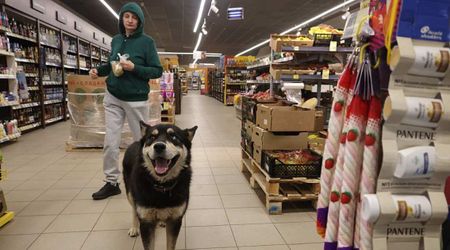Viral Video Shows Money-Saving Hacks to Prevent Wastage of Food

In a recent TikTok video, Alex (@mac.larena) sheds light on a major oversight that often leads to unnecessary food wastage and loss of money. By following her advice individuals can unlock a game-changing method to enhance sustainability, reduce food costs, and contribute to a more resource-efficient and environmentally conscious lifestyle.

Alex demonstrates a simple yet effective method. In a large bowl, she creates a mixture of white vinegar and cold water. This serves a dual purpose: removing dirt and pesticides while preventing mold. She then soaks bell peppers and zucchini in the solution, preparing them for freezing. She suggests using your fruits and vegetables when they start to get a bit wrinkled but are still okay to eat rather than waiting until they're completely rotten and you have to throw them away.
Once the soaking process is complete, Alex proceeds to cut the peppers into small chunks, ready for the next spaghetti sauce. She also shreds the zucchini using a food processor for future use in muffins and various recipes. Furthermore, she emphasizes that freezer bags are not single-use items. By utilizing leftover food efficiently, she encourages minimizing food waste, an important step in combating the 40 million tons of food waste the United States generates annually.

The TikTok video sparked a conversation among users who shared their tips for handling leftover produce. Suggestions ranged from creating quick soups by blending aging vegetables with canned tomatoes to incorporating them into fried rice dishes. This collaborative effort on TikTok not only inspired innovative culinary solutions but also fostered a sense of camaraderie among users eager to make the most of every ingredient in their kitchens.
The power of the video lies in its ability to motivate individuals to reconsider their daily habits and embrace practices that actively contribute to the reduction of wastage, advocating for a more responsible and sustainable utilization of resources. This ripple effect, initiated by Alex, exemplifies the transformative influence that social media can wield in shaping collective behaviors toward a more conscientious and eco-friendly lifestyle.
























